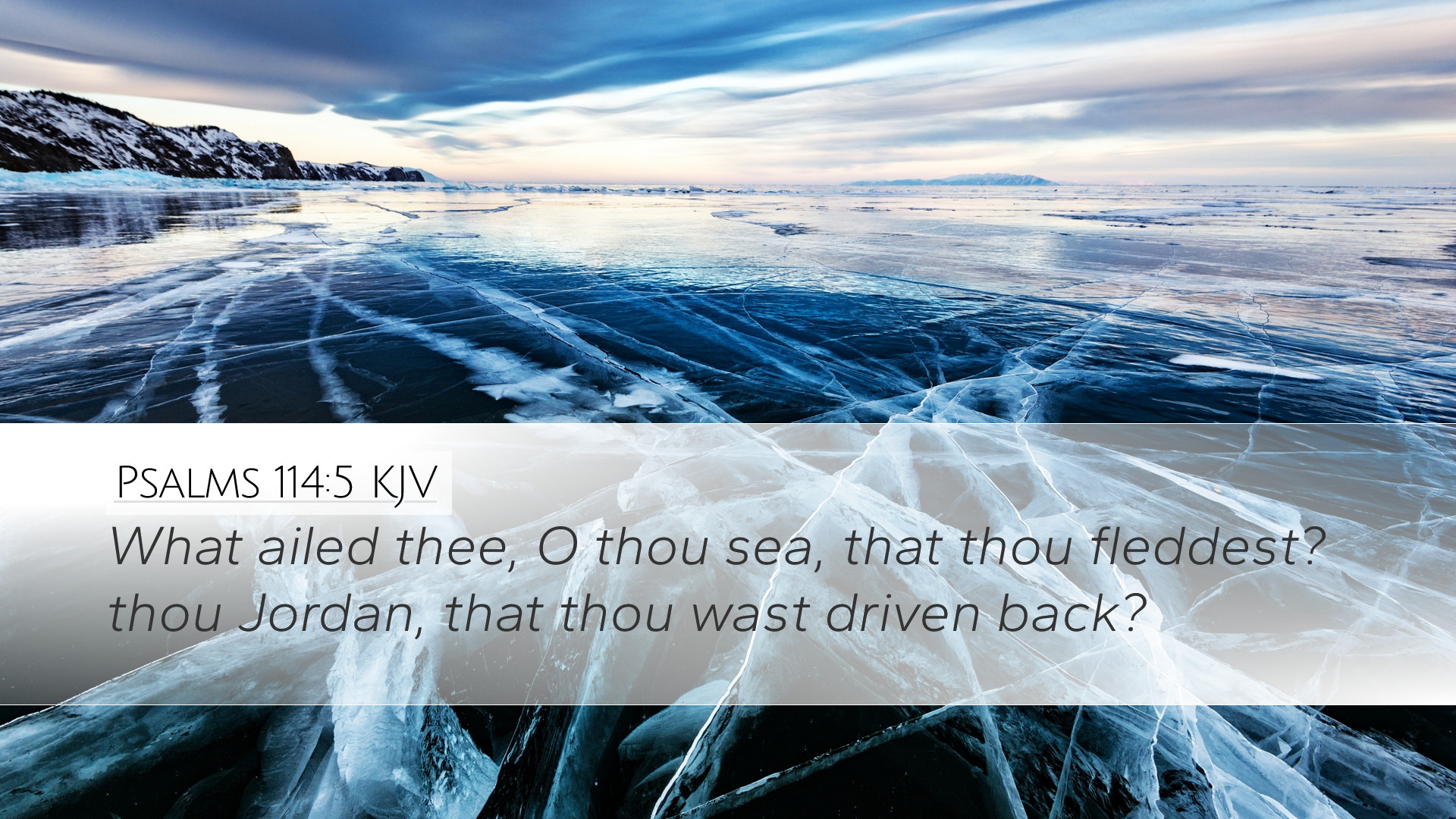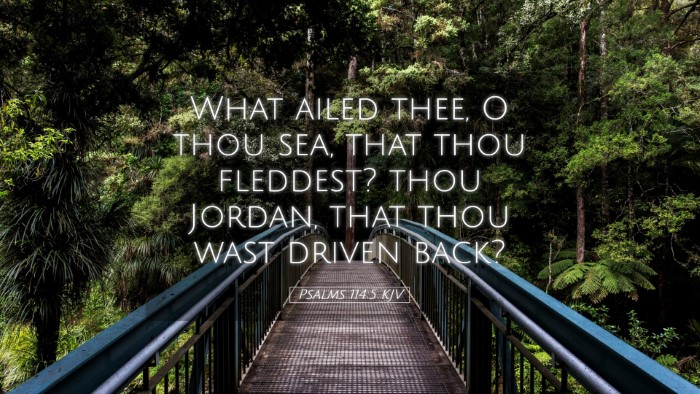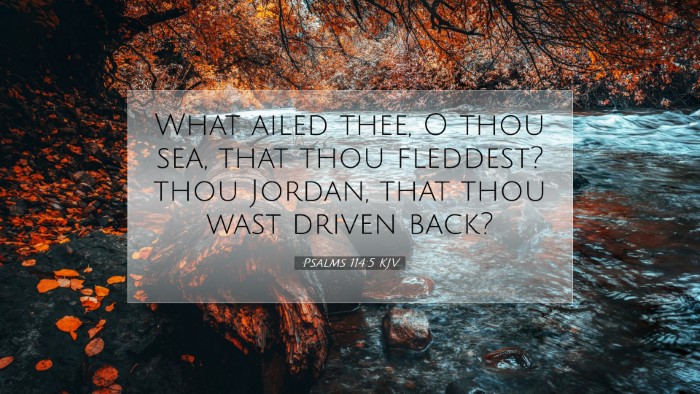Commentary on Psalms 114:5
Psalms 114:5 states:
"What ails thee, O thou sea, that thou fleest? thou Jordan, that thou wast driven back?"
Introduction
This verse is part of a Psalm that celebrates God's powerful deliverance of Israel from Egypt and their subsequent journey to the Promised Land. In this context, the Psalmist employs rhetorical questions that suggest a sense of awe and wonder concerning God's sovereign influence over nature.
Interpretive Insights
Matthew Henry's Commentary
Matthew Henry highlights that the questions posed in this verse are directed toward the natural elements—the sea and the Jordan River. According to Henry, these questions signify the profound impact of God's presence among His people. He notes:
- The Sea’s Flight: The phrase "that thou fleest" refers to the parting of the Red Sea, illustrating how the natural order is altered by divine intervention.
- The Jordan’s Retreat: The reference to the Jordan being "driven back" alludes to the miraculous crossing of the Jordan River into the Promised Land.
Henry emphasizes that these events serve to demonstrate God's might and establish His authority over creation.
Albert Barnes' Commentary
Albert Barnes further elaborates on the imagery presented in this verse, proposing that it is not merely a historical reflection but also serves as an admonitory call to remember God's past actions. Barnes observes:
- Questioning Nature: The rhetorical questions imply that the natural world recognizes God's command. The personification of the sea and Jordan suggests that nature responds to divine authority, drawing attention to God's omnipotence.
- Invocation of Awe: By addressing the sea and the river, the Psalmist invokes awe, inviting the audience to reflect on their own experiences of God's deliverance and miracles in history.
He concludes that the portrayal of the sea and Jordan embodies the broader theme of God’s providence and care for His people.
Adam Clarke's Commentary
Adam Clarke offers a nuanced approach, emphasizing both the literal and spiritual interpretations of the passage. Clarke states:
- Symbolism of Water: Clarke describes the sea and river as symbols of adversity. By questioning what prompts their retreat, the Psalmist draws on the imagery of fear and respect that creation has towards its Creator.
- Theological Implications: The inquiry inherent in the verse serves to reinforce the theological premise that God's interventions in the lives of His people often transcend natural law, evoking reverence.
In this interpretation, Clarke emphasizes the transformative power of divine presence as it reshapes reality for the faithful.
Thematic Significance
Psalms 114:5 encapsulates key themes of deliverance and divine authority that resonate throughout the Biblical narrative:
- Divine Sovereignty: The Psalm underscores God's supreme authority over creation. The questions posed mirror a universal acknowledgment of His power, challenging the audience to reconsider their understanding of the natural order in light of God's actions.
- Historical Memory: This verse serves as a reminder of Israel's storied past, emphasizing the need to recount God’s faithfulness and miraculous interventions. It invites the community of believers to reflect on their identity in relation to God’s enduring presence.
- Call to Worship: By leading with questions that stir wonder, the Psalmist creates a natural transition into worship—a response that acknowledges God’s might and grace.
Application for Contemporary Readers
For pastors, students, theologians, and Bible scholars, Psalms 114:5 provides rich material for reflection on the nature of God and His engagements with humanity:
- Encouragement in Trials: Just as the sea and the Jordan responded to God's command, believers today can find solace in knowing that God is active in their struggles and adversities, prompting them to trust in His deliverance.
- Inspiration for Worship: The depiction of creation responding to God’s voice serves as a powerful impetus to reignite worship practices that acknowledge His greatness in both individual and corporate settings.
- Historical Reflection: Understanding the historical contexts of these divine acts encourages a deeper faith rooted in the acknowledgment of God's unfailing assistance in the past.
Conclusion
Psalms 114:5 presents a profound meditation on the intersection of faith and the natural world, prompting believers to witness how God’s might transcends human understanding. The insights drawn from the commentaries of Matthew Henry, Albert Barnes, and Adam Clarke engrain this verse with theological depth and practical application, fostering a sense of awe that invites all to acknowledge God’s active presence in both history and personal experience.


